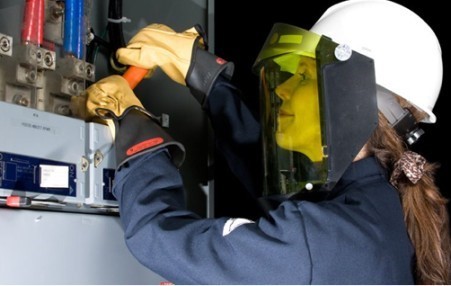COURSE OVERVIEW
ELECTRICAL & POWER ENGINEERING

OVERVIEW
| COURSE TITLE | : | EE1089 : Switchgear Transient Recovery Voltage (TRV): Techniques & Result Analysis |
| COURSE DATE | : | Jul 01 - Jul 04 2024 |
| DURATION | : | 4 Days |
| INSTRUCTOR | : | Mr. Ehab Mohamed Days |
| VENUE | : | Doha, Qatar |
| COURSE FEE | : | $ 5000 |
| Register For Course | ||
OTHER SCHEDULED DATES
| Date | : | Apr 29 - May 02 (4 Days) | Location | : | Abu Dhabi, UAE | Classroom Fee (US$) | : | $ 4500 | Course Info |
| Date | : | Oct 14 - Oct 17 (4 Days) | Location | : | Al Khobar, KSA | Classroom Fee (US$) | : | $ 4500 | Course Info |
Course Description
This practical and highly-interactive course includes various practical sessions and exercises. Theory learnt will be applied using our state-of-the-art simulators. This course is designed to provide participants with a detailed and up-to-date overview of switchgear transient recovery voltage (TRV) techniques and result analysis. It covers the general considerations and importance of TRV, the recent TRV studies in international bodies, main reference, standards and guides; the capacitive current switching TRV and recovery voltage comprising of ?1-cos? waveshape, voltage jump and current breaking conditions; the various types of faults covering reminder, overdamped TRV, reflected waves, underdamped TRV and triangular wave-shape; the TRV modification for current asymmetry, circuit breaker influence on TRV; and the terminal fault TRV, short line fault TRV and initial transient recovery voltage (ITRV). During this interactive course participants will learn the out-of-phase TRV, three-phase (long) line fault and shunt reactor switching TRV; the transformer limited fault TRV and options for specification; the transformer limited fault TRV for EHV and UHV circuit breakers; the TLF TRV peak calculation and TLF RRRV calculation; the series reactor limited fault TRV and the influence of series capacitor on TRV; and the harmonization of TRVs in IEC and IEEE standards for high-voltage circuit breakers.
TRAINING METHODOLOGY
This interactive training course includes the following training methodologies as a percentage of the total tuition hours
LecturesWorkshops & Work Presentations
Case Studies & Practical Exercises
Videos, Software & Simulators
In an unlikely event, the course instructor may modify the above training methodology before or during the course for technical reasons.
VIRTUAL TRAINING (IF APPLICABLE)
If this course is delivered online as a Virtual Training, the following limitations will be applicable
| Certificates | : | Only soft copy certificates will be issued to participants through Haward’s Portal. This includes Wallet Card Certificates if applicable |
| Training Materials | : | Only soft copy Training Materials (PDF format) will be issued to participant through the Virtual Training Platform |
| Training Methodology | : | 80% of the program will be theory and 20% will be practical sessions, exercises, case studies, simulators or videos |
| Training Program | : | The training will be for 4 hours per day starting at 09:30 and ending at 13:30 |
| H-STK Smart Training Kit | : | Not Applicable |
| Hands-on Practical Workshops | : | Not Applicable |
| Site Visit | : | Not Applicable |
| Simulators | : | Only software simulators will be used in the virtual courses. Hardware simulators are not applicable and will not be used in Virtual Training |
RELATED COURSES

EE0634 : Advanced Electrical Safety
- Date : May 20 -May 23 / 3 Days
- Location : Doha, Qatar
- Course Details Register

EE0085 : Power System Control & Stability
- Date : May 13 -May 16 / 3 Days
- Location : Al Khobar, KSA
- Course Details Register

EE0198 : API SIEE: Source Inspector - Electrical Equipment (API Exam Preparation Training)
- Date : May 12 -May 16 / 3 Days
- Location : Doha, Qatar
- Course Details Register

EE0421 : Electrical Transformers & Switchgears: Faults, Inspection, Testing, Maintenance & Troubleshooting
- Date : May 13 -May 16 / 3 Days
- Location : Abu Dhabi, UAE
- Course Details Register
